第15章
MERIAMUN THE QUEEN
Strange news flies fast. It was not long before the Pharaoh, who then was with his Court in Tanis, the newly rebuilded city, heard how there had come to Khem a man like a god, wearing golden armour, and cruising alone in a ship of the dead. In these years the white barbarians of the sea and of the isles were wont to land in Egypt, to ravage the fields, carry women captive, and fly again in their ships. But not one of them had dared to sail in the armour of the Aquaiusha, as the Egyptians named the Ach?ans, right up the river to the city of Pharaoh. The King, therefore, was amazed at the story, and when he heard that the stranger had taken sanctuary in the Temple of Heracles, he sent instantly for his chief counsellor. This was his Master Builder, who bore a high title in the land, an ancient priest named Rei. He had served through the long reign of the King's father, the divine Rameses the Second, and he was beloved both of Meneptah and of Meriamun his Queen. Him the King charged to visit the Sanctuary and bring the stranger before him. So Rei called for his mule, and rode down to the Temple of Heracles beyond the walls.
When Rei came thither, a priest went before him and led him to the chamber where the warrior chanced to be eating the lily bread of the land, and drinking the wine of the Delta. He rose as Rei entered, and he was still clad in his golden armour, for as yet he had not any change of raiment. Beside him, on a bronze tripod, lay his helmet, the Ach?an helmet, with its two horns and with the bronze spear-point still fast in the gold.
The eyes of Rei the Priest fell on the helmet, and he gazed so strangely at it that he scarcely heard the Wanderer's salutation. At length he answered, courteously, but always his eyes wandered back to the broken spear-point.
"Is this thine, my son?" he asked, taking it in his hand, while his voice trembled.
"It is my own," said the Wanderer, "though the spear-point in it was lent me of late, in return for arrows not a few and certain sword- strokes," and he smiled.
The ancient priest bade the Temple servants retire, and as they went they heard him murmuring a prayer.
"The Dead spoke truth," he muttered, still gazing from the helmet in his hand to the Wanderer; "ay, the Dead speak seldom, but they never lie."
"My son, thou hast eaten and drunk," then said Rei the Priest and Master Builder, "and may an old man ask whence thou camest, where is thy native city, and who are thy parents?"
"I come from Alybas," answered the Wanderer, for his own name was too widely known, and he loved an artful tale. "I come from Alybas; I am the son of Apheidas, son of Polypemon, and my own name is Eperitus."
"And wherefore comest thou here alone in a ship of dead men, and with more treasure than a king's ransom?"
"It was men of Sidon who laboured and died for all that cargo," said the Wanderer; "they voyaged far for it, and toiled hard, but they lost it in an hour. For they were not content with what they had, but made me a prisoner as I lay asleep on the coast of Crete. But the Gods gave me the upper hand of them, and I bring their captain, and much white metal and many swords and cups and beautiful woven stuffs, as a gift to your King. And for thy courtesy, come with me, and choose a gift for thyself."
Then he led the old man to the treasure-chambers of the Temple, which was rich in the offerings of many travellers, gold and turquoise and frankincense from Sinai and Punt, great horns of carved ivory from the unknown East and South; bowls and baths of silver from the Khita, who were the allies of Egypt. But amidst all the wealth, the stranger's cargo made a goodly show, and the old priest's eyes glittered as he looked at it.
"Take thy choice, I pray thee," said the Wanderer, "the spoils of foemen are the share of friends."
The priest would have refused, but the Wanderer saw that he looked ever at a bowl of transparent amber, from the far-off Northern seas, that was embossed with curious figures of men and gods, and huge fishes, such as are unknown in the Midland waters. The Wanderer put it into the hands of Rei.
"Thou shalt keep this," he said, "and pledge me in wine from it when I am gone, in memory of a friend and a guest."
Rei took the bowl, and thanked him, holding it up to the light to admire the golden colour.
"We are always children," he said, smiling gravely. "See an old child whom thou hast made happy with a toy. But we are men too soon again; the King bids thee come with me before him. And, my son, if thou wouldst please me more than by any gift, I pray thee pluck that spear- head from thy helmet before thou comest into the presence of the Queen."
"Pardon me," said the Wanderer. "I would not harm my helmet by tearing it roughly out, and I have no smith's tools here. The spear-point, my father, is a witness to the truth of my tale, and for one day more, or two, I must wear it."
Rei sighed, bowed his head, folded his hands, and prayed to his God Amen, saying:
"O Amen, in whose hand is the end of a matter, lighten the burden of these sorrows, and let the vision be easy of accomplishment, and I pray thee, O Amen, let thy hand be light on thy daughter Meriamun, the Lady of Khem."